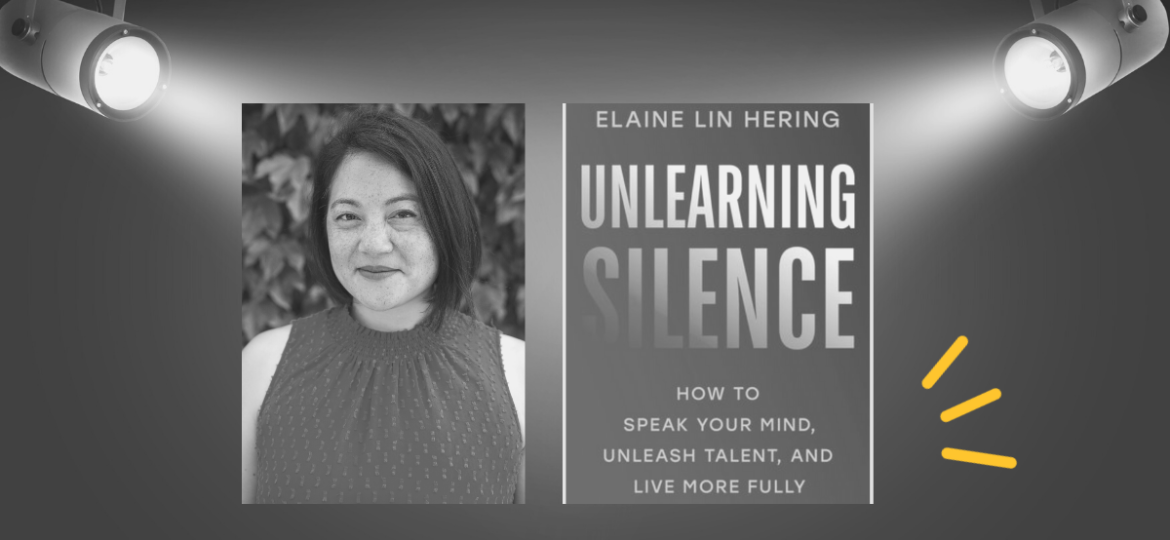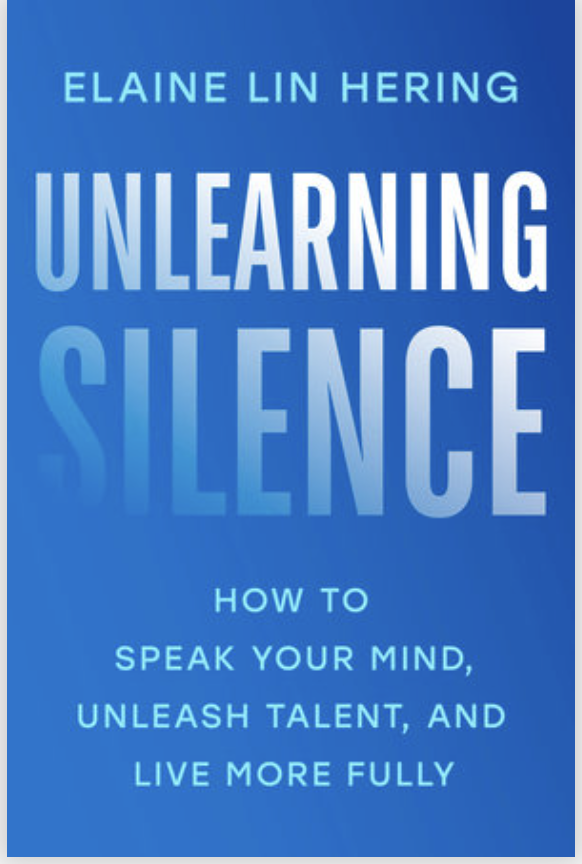
We are constantly on the lookout for opportunities to learn and grow. One such opportunity that has been making a big impact on our team lately is Elaine Lin Hering’s upcoming book, Unlearning Silence: How to Speak Your Mind, Unleash Talent, and Live More Fully.
It launches March 19, but you can preorder your copy now (be sure to check out the bonus material)!
We think it’s so important that we’re sending the first ten people who reach out to us a free copy when it comes out later this month (see details below).

What’s the story behind the book? What has become clearer since? Here’s a Q&A with Elaine, who answers those questions (and then some):
Q: Can you talk a little about your personal journey to Unlearning Silence? Why did you write this book?
Q: What did you find most challenging about bringing this book to life? What about most rewarding?
Q: What became clearer to you in the process of writing this book (or what is clearer to you now having written it)?
Q: Who needs to read this?
This is a book for people who have been told that using their voice is the leadership skill they need for the next level, who want to get their points of view across in meetings and finally get people to listen.
This is a book for people who have been silenced— who have been told they are not good enough, who have had to carefully calibrate what they can share and who they can be, and who struggle to know what their voice sounds like after so many years of being put down.
This is a book for anyone who wants to be seen, known, heard, and valued, and is coming to the conclusion that the people around you can’t support you unless you provide guidance about how they might best do so.
This is also a book for well- intentioned leaders and family members who genuinely want to do better. You believe in honoring the dignity of each human being, but don’t yet see how your actions silence the very people you intend to support.
Q: If you had to distill it, what are the two or three biggest things you hope readers take away from it (or hope they do/think more about moving forward)?
Q: When we think about silencing others, people could misinterpret it as being obvious/malicious things. (“Don’t ruin the good vibes/rock the boat/etc.”) What are some other sneaky ways you’ve observed or experienced that we silence others?
Want more?
For more, listen to Elaine and Sarah on the Conversations on Conversations podcast:
Episode 076: A Conversation on Unlearning Silence with Elaine Lin Hering
BONUS: We’ll send the first ten people who reach out to us a FREE copy of ELAINE’S book UPON RELEASE. If you want in, email hello@SarahNollWilson.com. Please include your shipping address.
Sarah Noll Wilson is on a mission to help leaders build and rebuild teams. She aims to empower leaders to understand and honor the beautiful complexity of the humans they serve. Through her work as an Executive Coach, an in-demand Keynote Speaker, Researcher, Contributor to Harvard Business Review, and Bestselling Author of “Don’t Feed the Elephants”, Sarah helps leaders close the gap between what they intend to do and the actual impact they make. She hosts the podcast “Conversations on Conversations”, is certified in Co-Active Coaching and Conversational Intelligence, and is a frequent guest lecturer at universities. In addition to her work with organizations, Sarah is a passionate advocate for mental health.


